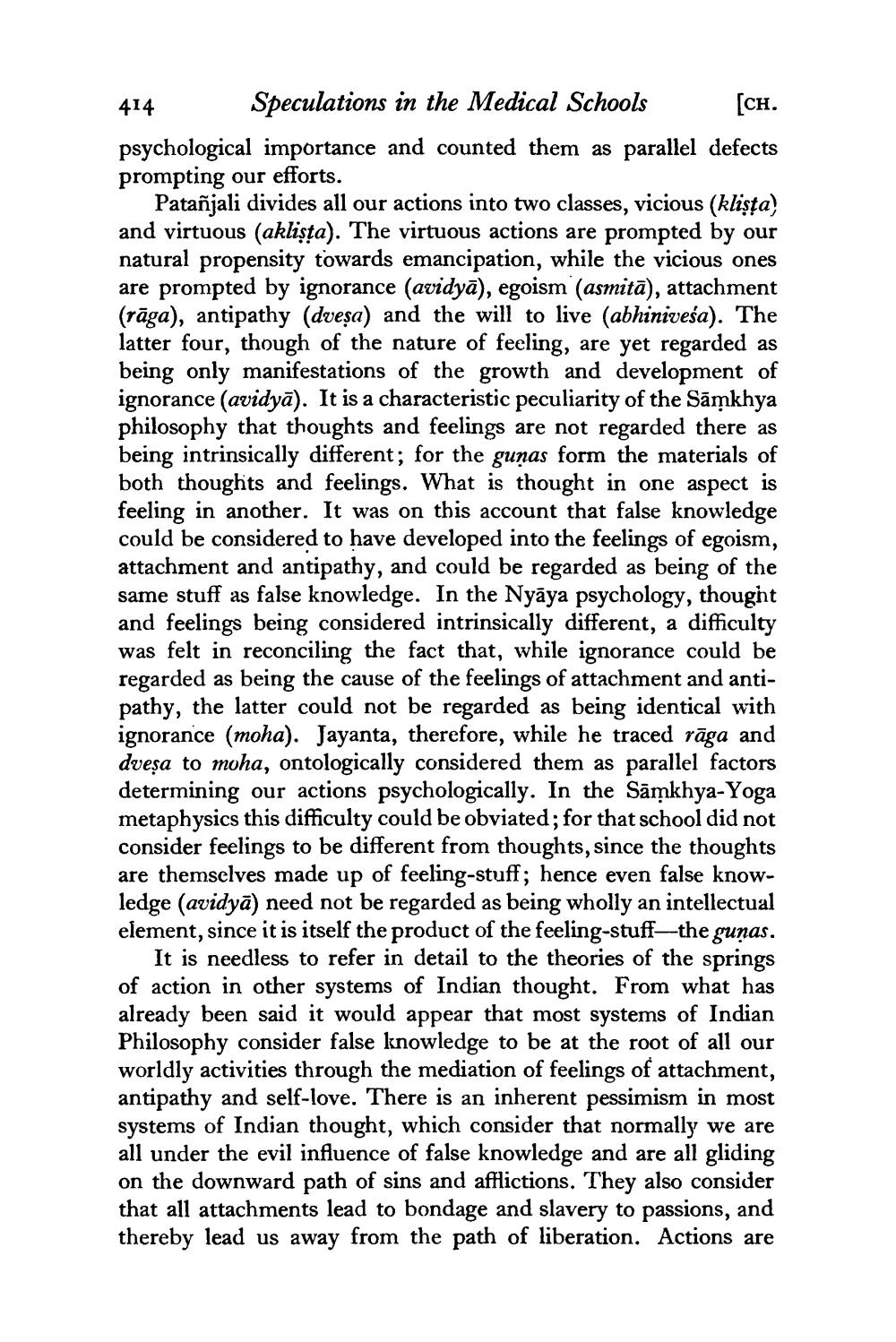________________
Speculations in the Medical Schools
[CH.
psychological importance and counted them as parallel defects prompting our efforts.
414
Patanjali divides all our actions into two classes, vicious (klista) and virtuous (aklista). The virtuous actions are prompted by our natural propensity towards emancipation, while the vicious ones are prompted by ignorance (avidya), egoism (asmitā), attachment (rāga), antipathy (dvesa) and the will to live (abhiniveśa). The latter four, though of the nature of feeling, are yet regarded as being only manifestations of the growth and development of ignorance (avidya). It is a characteristic peculiarity of the Samkhya philosophy that thoughts and feelings are not regarded there as being intrinsically different; for the gunas form the materials of both thoughts and feelings. What is thought in one aspect is feeling in another. It was on this account that false knowledge could be considered to have developed into the feelings of egoism, attachment and antipathy, and could be regarded as being of the same stuff as false knowledge. In the Nyaya psychology, thought and feelings being considered intrinsically different, a difficulty was felt in reconciling the fact that, while ignorance could be regarded as being the cause of the feelings of attachment and antipathy, the latter could not be regarded as being identical with ignorance (moha). Jayanta, therefore, while he traced raga and dveșa to moha, ontologically considered them as parallel factors determining our actions psychologically. In the Samkhya-Yoga metaphysics this difficulty could be obviated; for that school did not consider feelings to be different from thoughts, since the thoughts are themselves made up of feeling-stuff; hence even false knowledge (avidya) need not be regarded as being wholly an intellectual element, since it is itself the product of the feeling-stuff-the gunas.
It is needless to refer in detail to the theories of the springs of action in other systems of Indian thought. From what has already been said it would appear that most systems of Indian Philosophy consider false knowledge to be at the root of all our worldly activities through the mediation of feelings of attachment, antipathy and self-love. There is an inherent pessimism in most systems of Indian thought, which consider that normally we are all under the evil influence of false knowledge and are all gliding on the downward path of sins and afflictions. They also consider that all attachments lead to bondage and slavery to passions, and thereby lead us away from the path of liberation. Actions are




